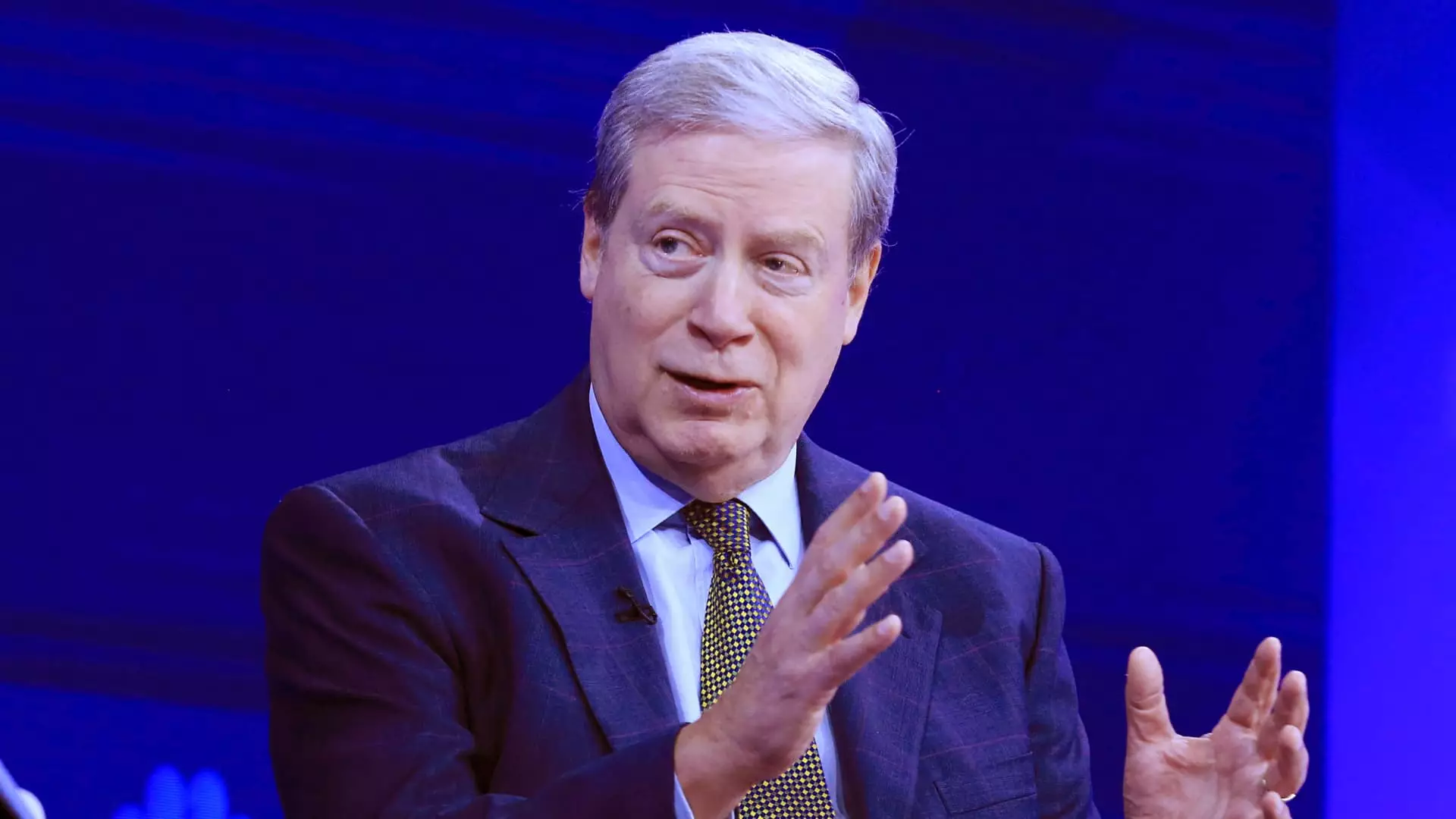The recent re-election of Donald Trump has significantly influenced market sentiment, igniting discussions among investors and analysts alike. Notably, billionaire investor Stanley Druckenmiller shared insights on how this political event has rekindled optimism among business leaders and sparked renewed enthusiasm in the financial markets. In a compelling CNN interview, Druckenmiller described the shift in economic climate as a transition from a period characterized by anti-business policies to one where business-friendly approaches are taking precedence again. This article delves into the implications of such sentiments for the economy and investor strategies while addressing potential risks that warrant attention.
The markets have shown remarkable resilience since Trump’s victory, with the S&P 500 experiencing a significant upswing. Druckenmiller noted a surge of nearly 6% in November alone, attributing this trend to the anticipated tax cuts and deregulation promised by the Trump administration. This anticipation has particularly amplified interest in risk assets, including sectors like banking and energy, alongside burgeoning interest in cryptocurrencies such as bitcoin, which achieved record highs soon after the election.
Yet, while Druckenmiller remains broadly optimistic about economic recovery driven by corporate enthusiasm, he adopts a cautious stance regarding stock market investments. His investment philosophy is shaped by the tension between a strong economy pushing stock values upward and rising bond yields that could dampen market enthusiasm. This dichotomy suggests that while the overall economic landscape may be brightening, the stock market could face pressures from increasing borrowing costs.
Druckenmiller emphasizes that current market dynamics are complicated. Although he sees potential for economic growth, this is juxtaposed with the rising bond yields which respond to stronger economic indicators. Investors are understandably anxious about how these competing forces will coexist. The seasoned investor has maintained his short position on Treasurys, indicating his belief that bond prices are likely to decrease as yields climb. His cautious approach portrays a seasoned investor’s understanding of the intricate balance required in market speculation, which is vital for those watching these developments.
Druckenmiller’s strategy suggests a pivot towards individual stock selection over broader market bets, an approach to mitigate risks associated with fluctuating yields and macroeconomic uncertainties. His attention to companies leveraging artificial intelligence for cost reduction and enhanced productivity exemplifies a forward-looking investment philosophy. While he refrains from naming specific stocks, his past engagement with giants like Nvidia and Microsoft provides insight into the sectors he finds promising, particularly in technological innovation.
Adopting a more selective investment strategy can be advantageous in the current environment, where volatility lingers. The focus on companies that are not only resilient but also at the forefront of technological advancements signals a nuanced understanding of future market trends, making such investments potentially rewarding.
Despite rising concerns regarding Trump’s proposed punitive tariffs and their possible impact on inflation, Druckenmiller offers a pragmatic view. He suggests that tariffs may serve as a consumption tax largely borne by foreign entities, and if managed within reasonable limits, could alleviate some fiscal pressures. This perspective underscores the complexity of trade policies and their broader economic implications, challenging the notion that tariffs are universally detrimental.
Moreover, his remarks regarding the proposed graduated tariffs—a strategy of gradual increases—suggest a tactical approach that might mitigate retaliation from trading partners while generating necessary revenues for the U.S. This indicates an evolving economic narrative where fiscal needs may become intertwined with international trade dynamics.
Stanley Druckenmiller’s insights illustrate a transformative moment in economic sentiment triggered by the political shift of Trump’s re-election. While investor optimism rises, it coexists with a need for caution regarding stock markets and bond yields. A focus on selecting resilient individual stocks in sectors like AI, alongside a pragmatic take on tariffs, positions investors to navigate this evolving economic landscape strategically.
In a world where market conditions can shift rapidly, an adaptable investment approach grounded in thorough analysis will undoubtedly be essential for capitalizing on emerging opportunities while managing inherent risks.

